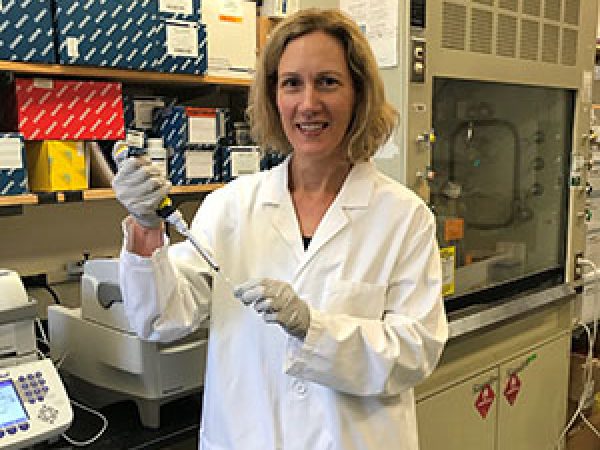AACR Annual Meeting 2021: NextGen Stars Sessions Featured Research from Early-career Investigators
Since 2014, the American Association for Cancer Research (AACR) has invited early-career investigators to apply to the NextGen Stars program, which provides awardees the opportunity to present their research on a global stage at the AACR Annual Meeting.

The enhanced visibility granted by the NextGen Stars program has helped prior recipients establish collaborations and receive constructive feedback at a pivotal time in their careers, and has even led to additional awards and opportunities, according to a story on AACR News, the official news source of the AACR Annual Meeting 2021. The benefits of the NextGen Stars program extend to the broader scientific community as well by fostering the inclusion of fresh scientific ideas and diverse voices.
This year’s Annual Meeting featured presentations from 16 awardees across three spotlight sessions. The research pursued by the 2021 class of NextGen Stars covers a wide range of topics in cancer research and sheds light on novel therapeutic strategies, new cancer models, cancer development and progression, health disparities, and treatment responses.
Spotlight Session on Genetics and Epigenetics
In the first spotlight session, NextGen Star Andrew Aguirre, MD, PhD, presented a study titled “Synthetic lethal interaction between the ESCRT paralog enzymes VPS4A and VPS4B in cancers harboring loss of chromosome 18q or 16q.” Using a CRISPR/Cas genetic screen, Aguirre and colleagues identified a synthetic lethal relationship between VPS4A and VPS4B, enzymes involved in protein transport. Treatment of cancer cells with interferon or inhibition of the ESCRT pathway further sensitized VPS4B-deficient cells to VPS4A suppression, suggesting potential therapeutic approaches.
Another study from the session, titled “Identification of high priority genes for basic and translational pancreatic cancer research,” was presented by Zeribe Chike Nwosu, PhD. By analyzing over 20 public gene expression datasets of pancreatic ductal adenocarcinoma (PDAC), Nwosu and colleagues identified potential biomarkers of response and novel therapeutic targets. A promising therapeutic approach uncovered by their research was the combination of BET inhibition and gemcitabine treatment, which synergized to reduce PDAC cell viability.
Burcu Darst, PhD, presented “Multiethnic prostate cancer GWAS meta-analysis identifies novel variants, improves genetic risk prediction across populations, and informs biological mechanisms of prostate cancer.” Darst and colleagues conducted a multiethnic genome-wide association study to identify genetic risk factors of prostate cancer. The analysis revealed distinct germline variants by race that could contribute to racial/ethnic disparities in prostate cancer incidence.
A presentation by Debattama Sen, PhD, “Disrupting enhancers within the core epigenetic program of exhaustion improves CD8+ T cell responses and enhances tumor control,” described the identification of an epigenetic profile that was associated with T-cell exhaustion. Disruption of an epigenetically modified enhancer region near the PD-1 gene mitigated T-cell exhaustion without impairing potentially beneficial functions of PD-1.
In the final presentation of this session, Eneda Toska, PhD, described a study titled “Epigenetic mechanisms of endocrine therapy response in breast cancer.” Toska and colleagues found that mutation or loss of FOXA1 or ARID1A drives resistance of breast cancer to endocrine therapies. Further analysis provided insight into the mechanisms by which these genetic alterations promote treatment resistance.
Spotlight Session on Tumor Microenvironment, Metastasis, and Oncogenesis
The second NextGen Stars spotlight session included a presentation by George Burslem, PhD, titled “Addressing scaffolding roles of oncogenic kinases with targeted protein degradation.” Burslem described the development and validation of Proteolysis Targeting Chimera (PROTAC) molecules for the degradation of receptor tyrosine kinases in cancer cells.
Another NextGen Star, Moran Amit, MD, PhD, presented “Cancer takes a nerve: Loss of p53 drives neuron reprogramming in head and neck cancer.” Amit and colleagues found that mutation or loss of p53 in cancer cells prevented the release of a microRNA responsible for suppression of neuron proliferation. Due to the reduced secretion of this microRNA, the proliferation and reprogramming of nearby neurons increased, which are associated with tumor growth.
Pau Castel, PhD, presented “Oncoprotein duality in cancer and developmental syndromes: Lessons learned from RAS GTPases.” Castel’s analysis revealed that cancer and developmental syndromes harbor similar mutations in RIT1 and provided insight into the pathogenic mechanism of RIT1 mutations.
A presentation titled “Bioengineered tissue mimetic hydrogels to study brain tumor biology and screen therapeutics” was delivered by Sara Pedron, PhD. Pedron and colleagues developed a novel three-dimensional in vitro brain tumor model to study treatment response, tumor growth and invasion, and the role of the extracellular matrix in these processes.
The final study of the session, titled “A metastasis map of human cancer cell lines,” was presented by Xin Jin, PhD. Jin and colleagues developed a metastasis map (MetMap) that revealed organ-specific patterns of metastasis and their associations with clinical and genomic features.
Spotlight Session on Immunology and Targeted Therapy
In the third NextGen Stars spotlight session, Anusha Kalbasi, MD, presented a study titled “Orthogonal IL-9 receptor signaling reprograms T cells to obviate conditioning chemotherapy before adoptive cell therapy.” In this preclinical study, Kalbasi and colleagues found that expression of the orthogonal IL-9 receptor improved adoptive T-cell expansion, persistence, and antitumor immunity in the absence of prior lymphodepletion.
Another study, presented by Xuhui Bao, MD, PhD, was titled “From cholesterol regulation to tumor suppression: Pcsk9 as a novel target for cancer immunotherapy.” Inhibition of the cholesterol-regulating protein Pcsk9 in cancer cells enhanced antitumor immunity, prevented resistance to immune checkpoint blockade, and suppressed tumor growth, according to findings presented by Bao.
Yuxuan Phoenix Miao, PhD, presented “Decoding the stem cells-immune cell dialogues for cancer immunotherapy.” In this study, Miao and colleagues observed that the changes to immune signaling in post-immunotherapy cancer were similar to those observed during wound healing. They found that tumor-initiating cells acquire stem cell-like immune signaling that reduces antitumor immunity and promotes tumor relapse.
A presentation by Shruti Bhatt, PhD, was titled “Reduction in mitochondrial priming drives resistance to targeted therapy in acute myeloid leukemia.” Bhatt and colleagues identified reduced mitochondrial apoptotic priming as a mechanism by which acute myeloid leukemias develop resistance to targeted therapies. Furthermore, they found that pretreatment levels of mitochondrial apoptotic priming were predictive of treatment response.
A study by Christy Hagan, PhD, “Progesterone-mediated immune evasion in breast cancer,” revealed that expression of the progesterone receptor (PR) in breast cancer was associated with reduced inflammatory and interferon signaling, as well as an immunosuppressive microenvironment. Hagan and colleagues determined that these effects may be due to the interaction of PR with the STAT1 signaling protein.
Finally, Luis Alberto Perez-Quintero, MD, PhD, presented “Concomitant reduction of PTPN1/PTPN2 activity synergistically enhanced antitumoral effector function of CD8 T cells.” Perez-Quintero and colleagues found that small molecule inhibition of the PTPN1 and PTPN2 JAK/STAT phosphatases increased cytotoxic activity and interferon secretion of CD8+ T cells, increased JAK/STAT signaling, and sensitized cells to interferon treatment.
For more information on the NextGen Stars program and this year’s recipients, please visit: https://www.aacr.org/meeting/aacr-annual-meeting-2021/nextgen-stars/



